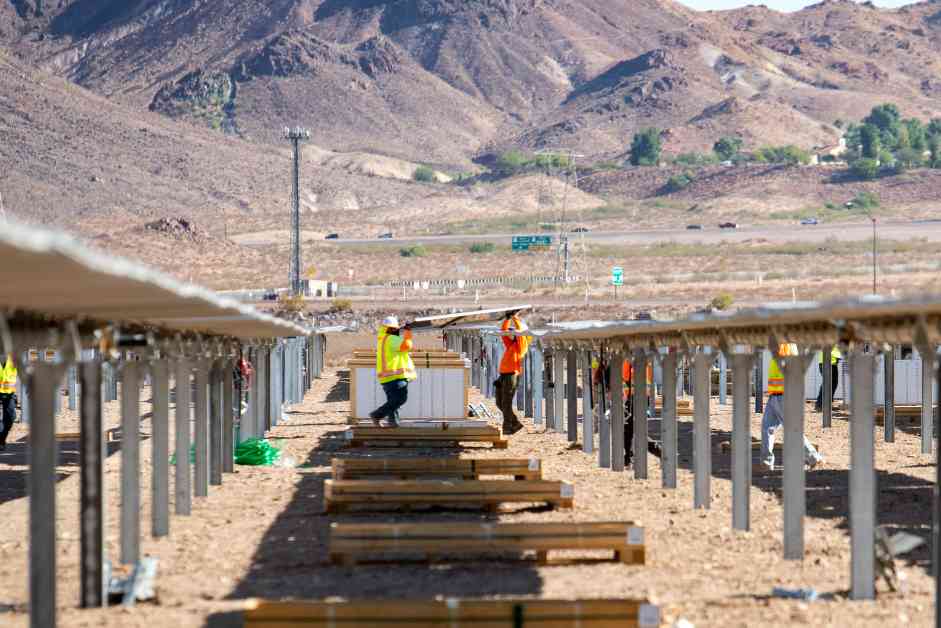Clean Energy Debate Shapes Nevada Senate Race
The race for the Nevada Senate seat is heating up as the development of clean energy takes center stage, dividing the two candidates along starkly contrasting lines. With the state experiencing a rapid buildout of renewable energy projects, the candidates’ positions on solar energy have emerged as a critical issue in the upcoming election.
Incumbent Sen. Jacky Rosen (D-NV) has been a vocal advocate for renewable energy and pro-climate policies, supporting legislation like the landmark Inflation Reduction Act and fighting against tariffs on imported solar panels. On the other hand, her Republican opponent, Sam Brown, has expressed concerns about the impact of solar and wind farms on Nevada’s landscapes, aligning himself with a more traditional approach to energy production focused on domestic oil and gas.
Battle for Climate and Energy Policies
The contrasting views of the candidates reflect broader divisions within the state over the future of energy and climate policies. While Rosen champions the transition to clean energy as a means to create jobs and lower costs, Brown has voiced skepticism about the benefits of renewable energy projects and has emphasized the importance of supporting traditional energy sources.
The outcome of the Nevada Senate race holds significant implications for national climate policy, as Democrats aim to retain control of key seats like Nevada in order to advance legislation addressing climate change. With the potential for a divided government looming, the fate of initiatives like the Inflation Reduction Act hangs in the balance, as Republicans, led by figures like Donald Trump, seek to roll back clean energy measures.
Impact on Nevada’s Clean Energy Economy
Nevada’s status as a leader in clean energy development is driving the debate in the Senate race, with the state witnessing a surge in solar and wind projects that are reshaping its energy landscape. The passage of legislation like the Inflation Reduction Act has been instrumental in fueling this growth, creating jobs and opportunities for the state to export renewable energy to neighboring regions.
Supporters of clean energy initiatives point to the economic benefits of transitioning to renewable sources, highlighting the potential for job creation and reduced energy costs for residents. However, opponents like Brown raise concerns about the impact of large-scale solar and wind projects on Nevada’s natural landscapes and question the long-term sustainability of such ventures.
As Nevada grapples with the dual challenges of climate change and economic development, the Senate candidates’ positions on clean energy have emerged as a key point of contention in the race, reflecting broader debates over the future of energy policy in the state.
Overall, the Nevada Senate race is shaping up to be a pivotal battleground for competing visions of the state’s energy future, with voters set to make a crucial decision on the direction of climate and environmental policies in the coming election.

